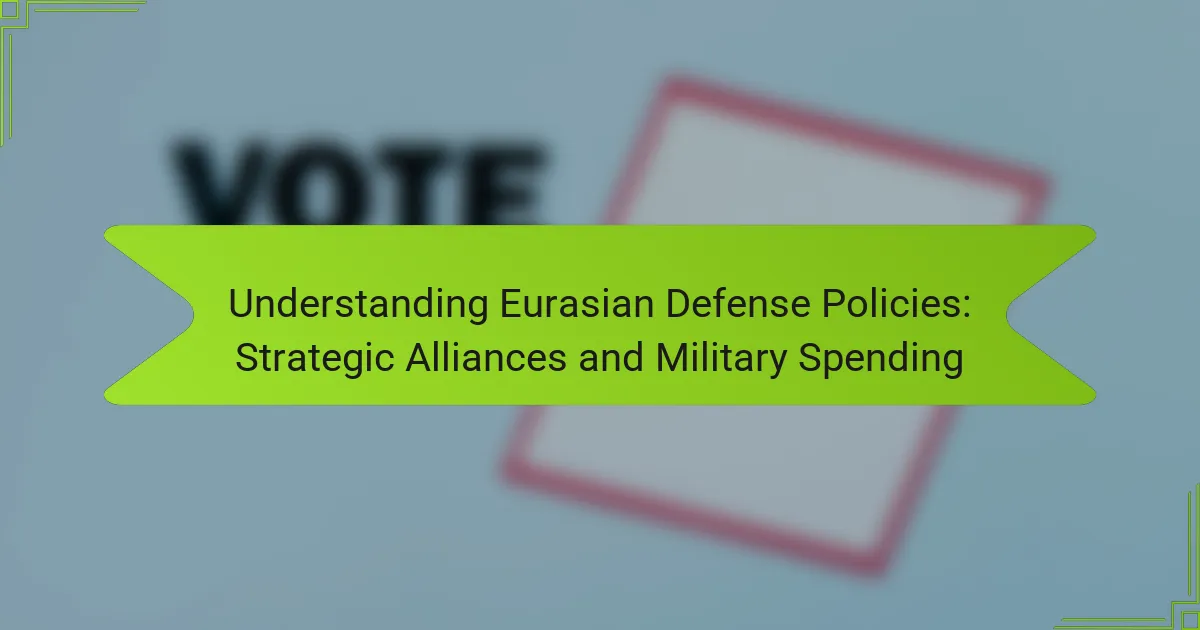Eurasian defense policies encompass strategic alliances, military spending, and regional security cooperation, with the Collective Security Treaty Organization (CSTO) exemplifying key partnerships. Significant disparities in military spending exist among Eurasian nations, particularly with Russia’s focus on modernization. The landscape is shaped by common security threats, including terrorism and border security, while challenges such as geopolitical […]
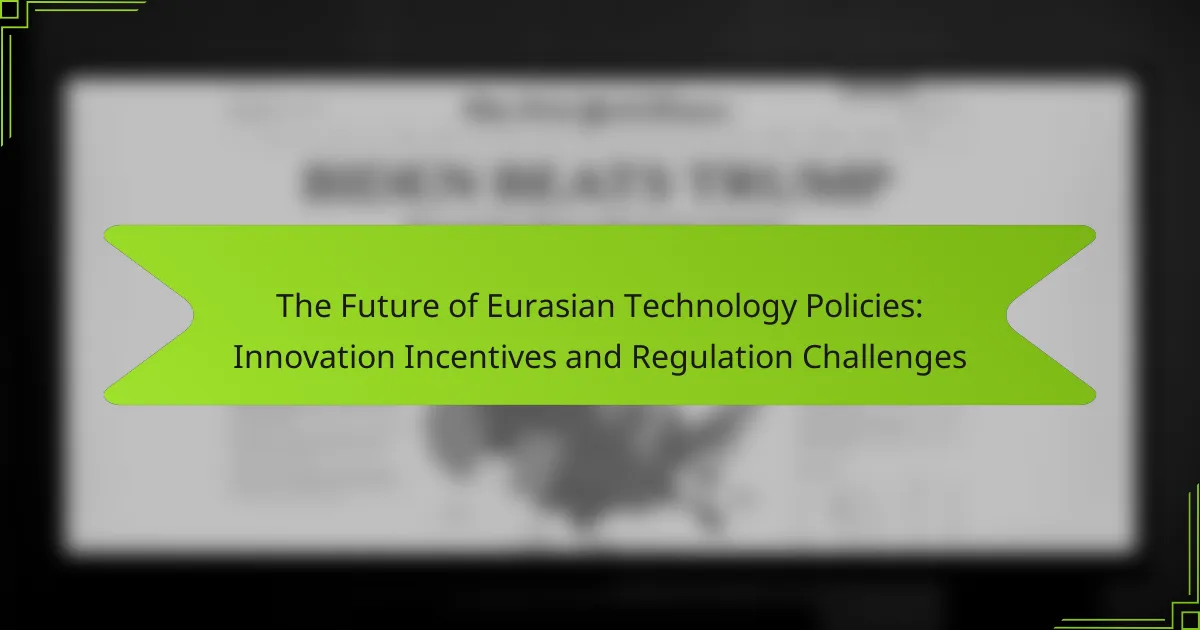
The Future of Eurasian Technology Policies: Innovation Incentives and Regulation Challenges
The article examines the evolving landscape of technology policies in Eurasia, focusing on key elements such as innovation promotion, regulatory frameworks, and international collaboration. It highlights the importance of enhancing research and development capabilities while ensuring compliance with data protection and cybersecurity standards. The analysis includes the role of stricter regulations and incentives for innovation, […]
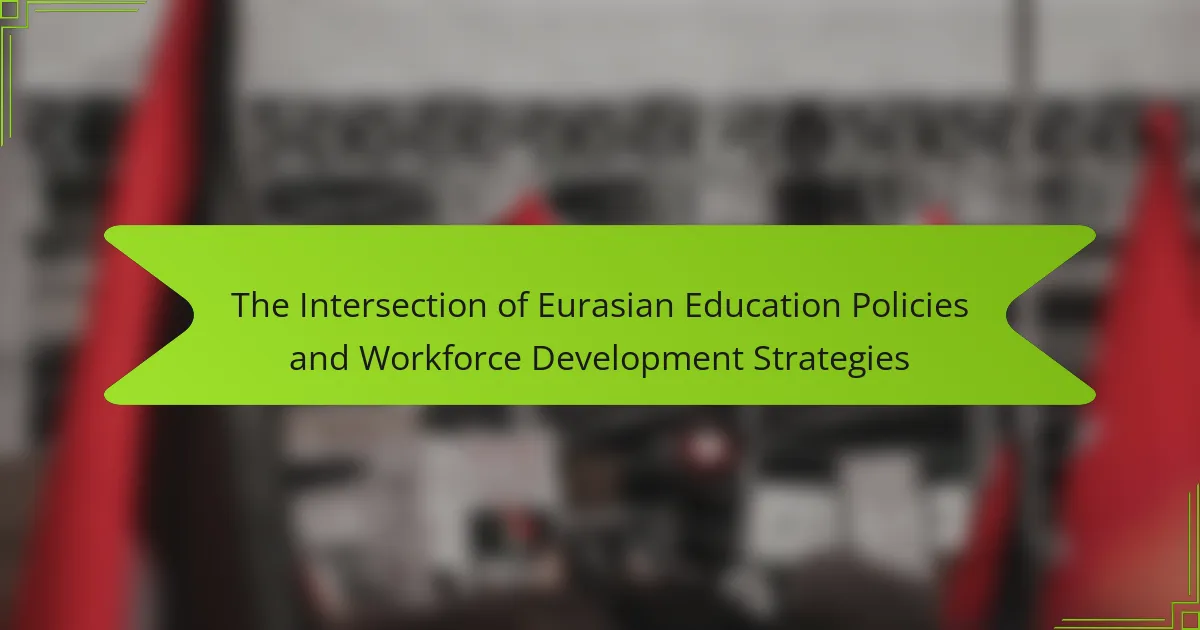
The Intersection of Eurasian Education Policies and Workforce Development Strategies
The article examines the intersection of Eurasian education policies and workforce development strategies, focusing on key components such as alignment with labor market needs, investment in vocational education, and the promotion of lifelong learning. It highlights how various countries in the region, including Finland, Kazakhstan, Russia, and Azerbaijan, implement tailored approaches to enhance employability and […]

Eurasian Government Policies: Overview of Economic Reforms and Their Impact on Trade Relations
Eurasian government policies encompass the regulatory frameworks and strategies adopted by countries in the Eurasian region, aimed at fostering economic cooperation and integration. A prominent example is the Eurasian Economic Union (EAEU), established in 2015, which includes member states such as Russia, Kazakhstan, and Belarus, and facilitates the free movement of goods, services, and labor. […]

Analyzing Eurasian Government Policies: Social Welfare Initiatives and Their Outcomes
Eurasian government policies on social welfare initiatives focus on key areas such as poverty alleviation, healthcare access, and education support, aiming to enhance citizens’ quality of life across the region. Specific programs include financial assistance and job creation in poverty alleviation, universal health coverage in healthcare access, and funding for educational institutions. The effectiveness of […]
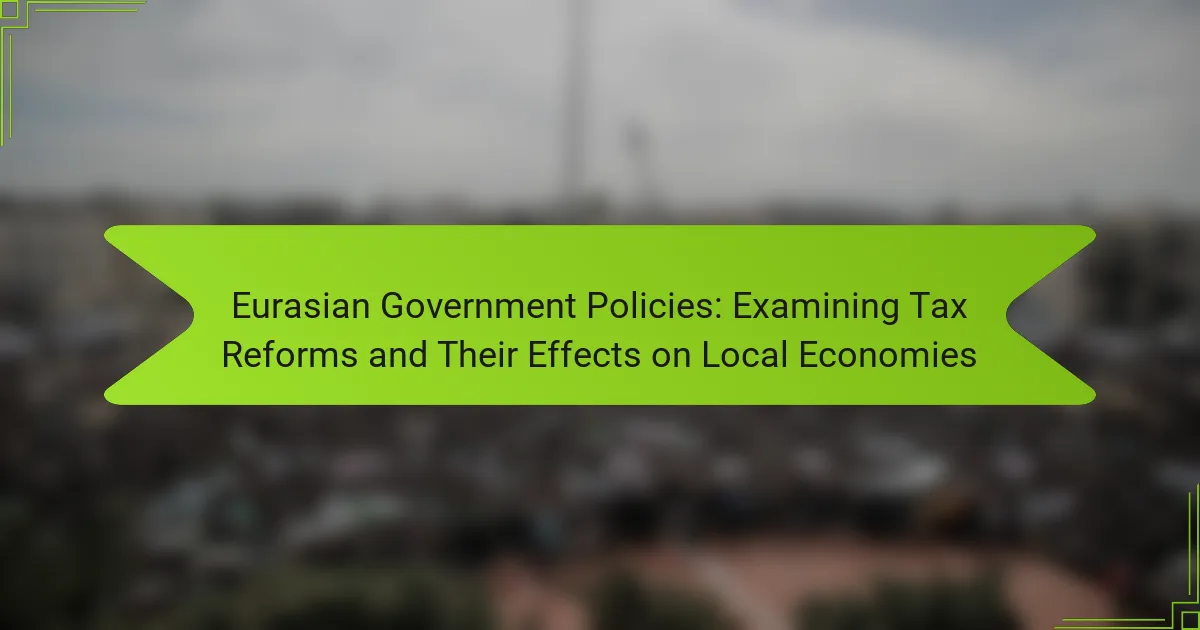
Eurasian Government Policies: Examining Tax Reforms and Their Effects on Local Economies
Eurasian government policies encompass the regulatory frameworks and strategies employed by countries in the Eurasian region to manage economic activities, with a particular focus on tax reforms. These reforms aim to stimulate economic growth, enhance fiscal stability, and improve tax collection efficiency. The article examines how tax reforms influence local economies by affecting revenue structures, […]

Evaluating Eurasian Energy Policies: Renewable Resources and Sustainability Efforts
Eurasian energy policies focus on key components such as energy security, diversification of energy sources, and sustainability initiatives. Energy security ensures reliable access to resources through strategic partnerships and infrastructure investments, while diversification aims to reduce reliance on a single energy source. Many Eurasian nations are investing in renewable energy technologies to meet sustainability goals […]
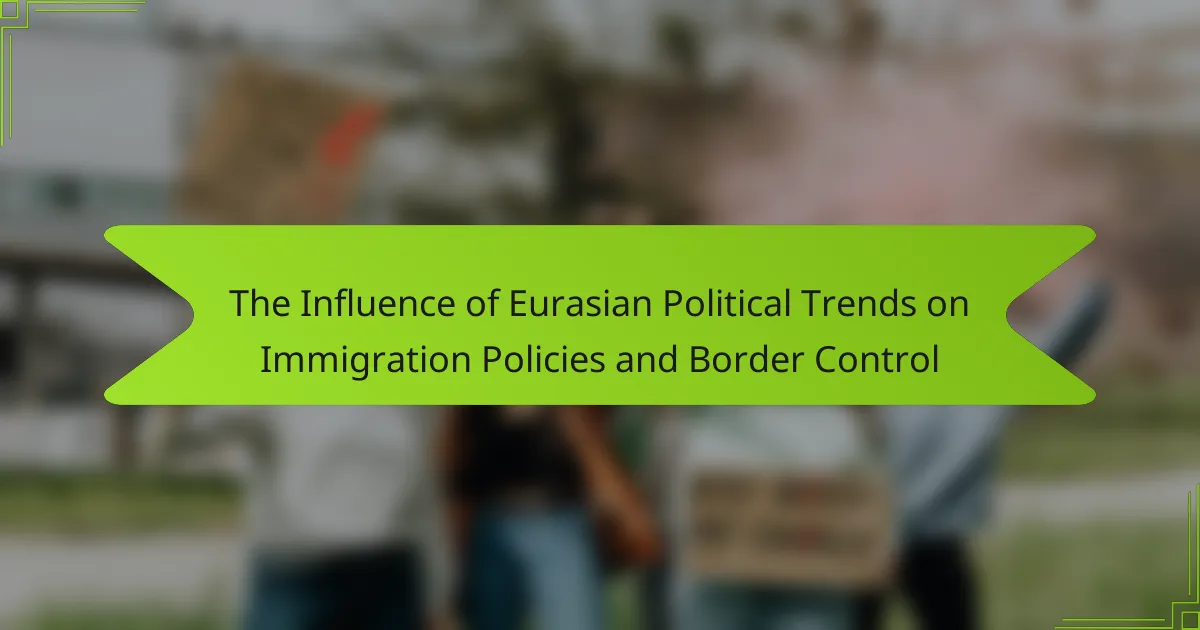
The Influence of Eurasian Political Trends on Immigration Policies and Border Control
Eurasian political trends significantly influence immigration policies and border control across the region. Rising nationalism, geopolitical tensions, and economic migration are key factors shaping these policies. Countries such as Hungary and Poland are enacting stricter immigration laws driven by nationalist movements, while Russia is tightening border controls due to geopolitical conflicts. Economic migration from Central […]
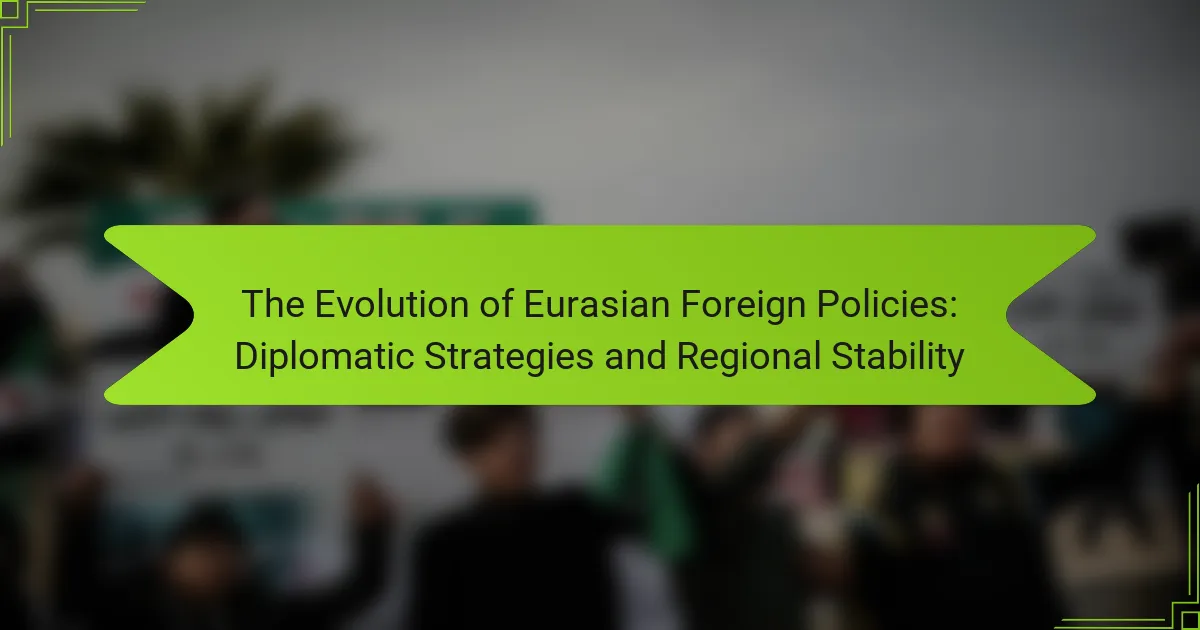
The Evolution of Eurasian Foreign Policies: Diplomatic Strategies and Regional Stability
The primary entity of the article is Eurasian foreign policies, which encompass strategic partnerships, regional security, economic cooperation, and cultural diplomacy among countries in the Eurasian region. The article outlines the evolution of these foreign policies, highlighting the shift from traditional bilateral treaties to modern multilateral diplomacy and the rise of digital diplomacy. It emphasizes […]
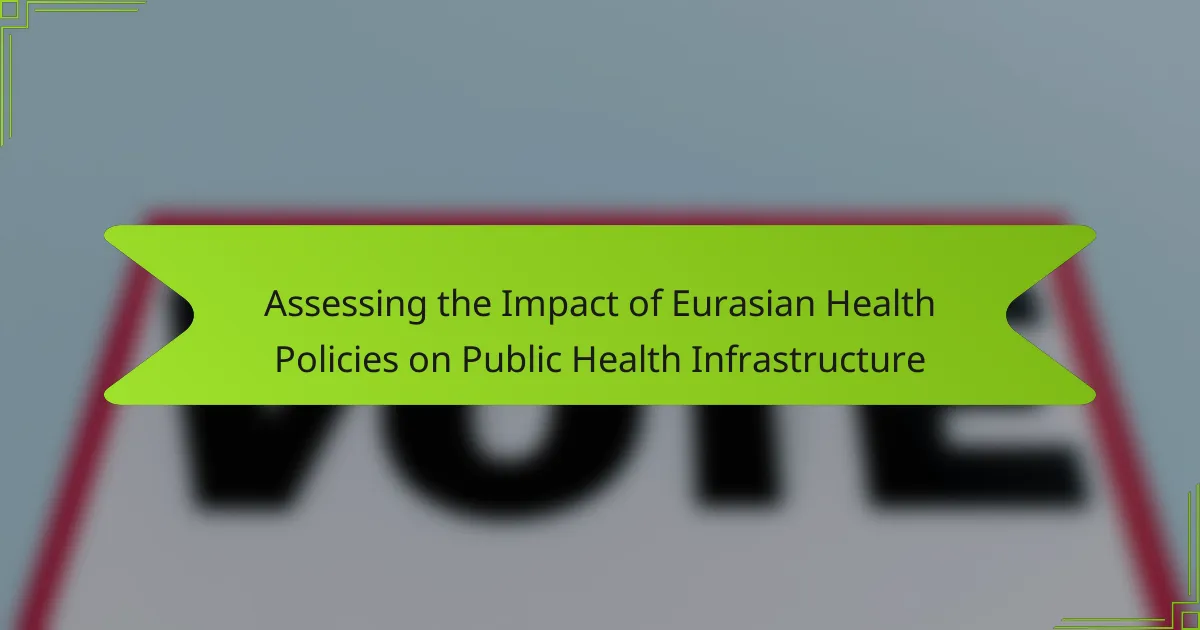
Assessing the Impact of Eurasian Health Policies on Public Health Infrastructure
Eurasian health policies are centered around key components such as universal health coverage, health system strengthening, and cross-border health initiatives. Universal health coverage aims to provide all individuals with access to essential health services without financial strain, while health system strengthening focuses on enhancing healthcare infrastructure and workforce capacity. Cross-border health initiatives facilitate collaboration among […]
